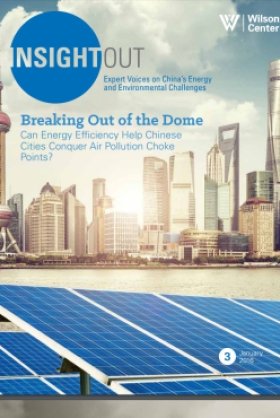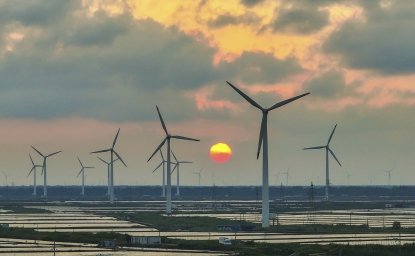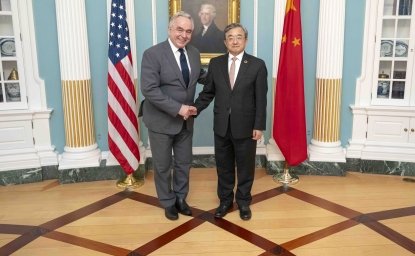InsightOut Issue 3 - Breaking Out of the Dome


China’s Premier Li Keqiang—who in 2014 declared a “war on pollution”—stressed at the 2015 National People’s Congress the government’s commitment to intensifying improvements in energy efficiency as another key strategy to help clear the air. To explore the potential of this new “weapon" to clean smog-filled urban skies, the Wilson Center’s China Environment Forum’s new publication Breaking Out of the Dome curates opinions and recommendations from both Chinese and American experts. These op-ed style pieces focus on energy-efficiency policies, pilots, and studies in major Chinese cities not simply because they are at the epicenters of the country’s “war on pollution,” but also because these huge cities have the capacity to catalyze new energy solutions.
With supportive polices, pilot programs, and strategic cooperation with the United States, China can boost its energy efficiency performance in the post-COP21 years to meet its pledge to peak emissions by 2030 and break the dome of pollution, thereby bringing more blue skies and better health for the 700 million city residents. From a demand response pilot to U.S.-Chinese energy and climate cooperation, our authors share various initiatives China’s major cities have adopted or could introduce to secure a cleaner future:
- Fran Schulberg, Winston Gilcrease, Sara Chun, and Julia Beabout from the China-U.S. Energy Efficiency Alliance begin with an introduction of China’s air pollution-led urban health crises and illustrate the energy efficiency solutions adopted by U.S. companies and their Chinese partners to address this growing problem.
- Hyoungmi Kim, an energy efficiency and utility policy specialist at the Natural Resources Defense Council Beijing (NRDC) office, discusses the opportunities and challenges faced by China’s first demand response pilot project launched in Shanghai two years ago, which aims to reduce the electricity load on the grid.
- Judy Li and Zhiming Pan from NRDC’s green building team stress the importance of data transparency in order to improve city buildings’ compliance with energy efficiency standards.
- David Ribeiro and Michael Jarrett from the American Council for an Energy -Efficient Economy detail how a four-year City Energy Efficiency Scorecard system created a friendly competition among U.S. cities that led to the majority of the surveyed cities to commit to more aggressive energy efficiency efforts. The momentum built by the scorecard system offers another tool for Chinese cities to promote energy efficiency.
Managing Editor, Qinnan (Sharon) Zhou.

China Environment Forum
Since 1997, the China Environment Forum's mission has been to forge US-China cooperation on energy, environment, and sustainable development challenges. We play a unique nonpartisan role in creating multi-stakeholder dialogues around these issues. Read more

Explore More
Browse Insights & Analysis
Charged Up: China Driving Thailand’s EV Industry




